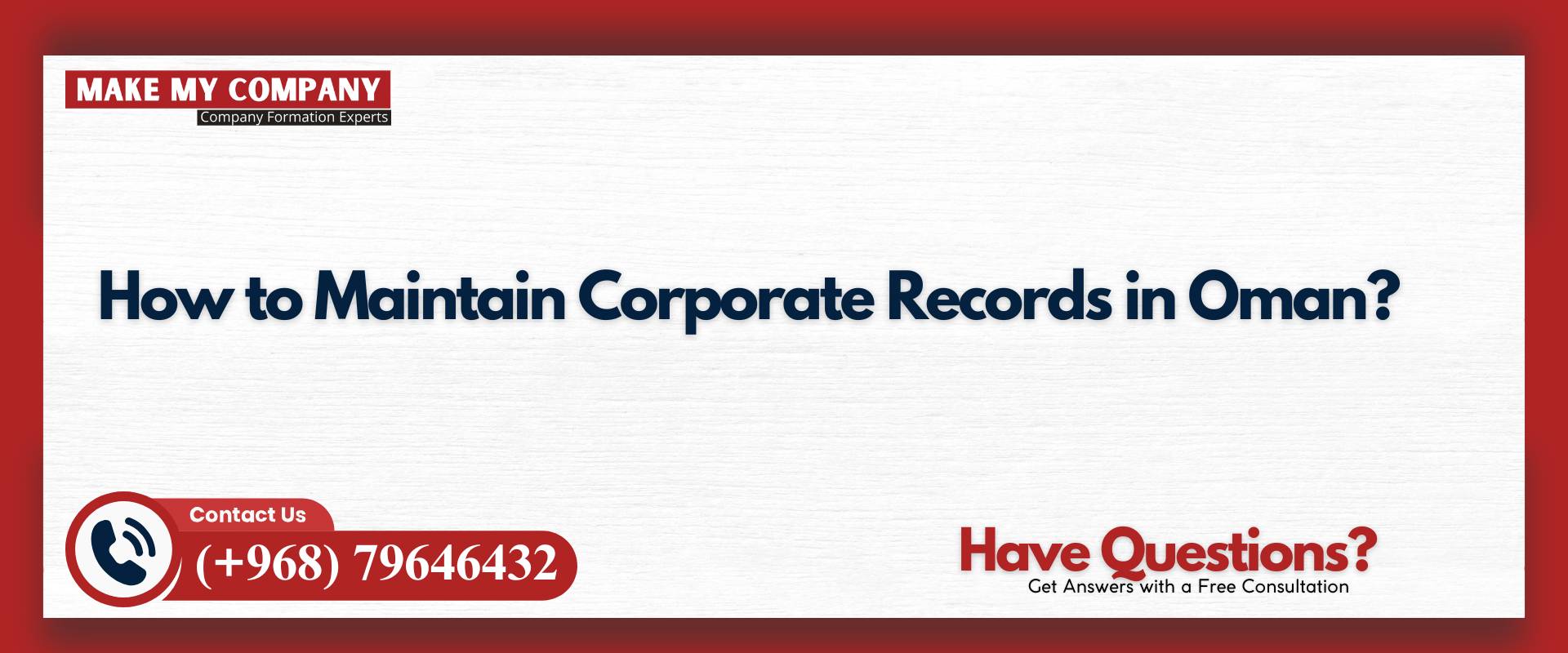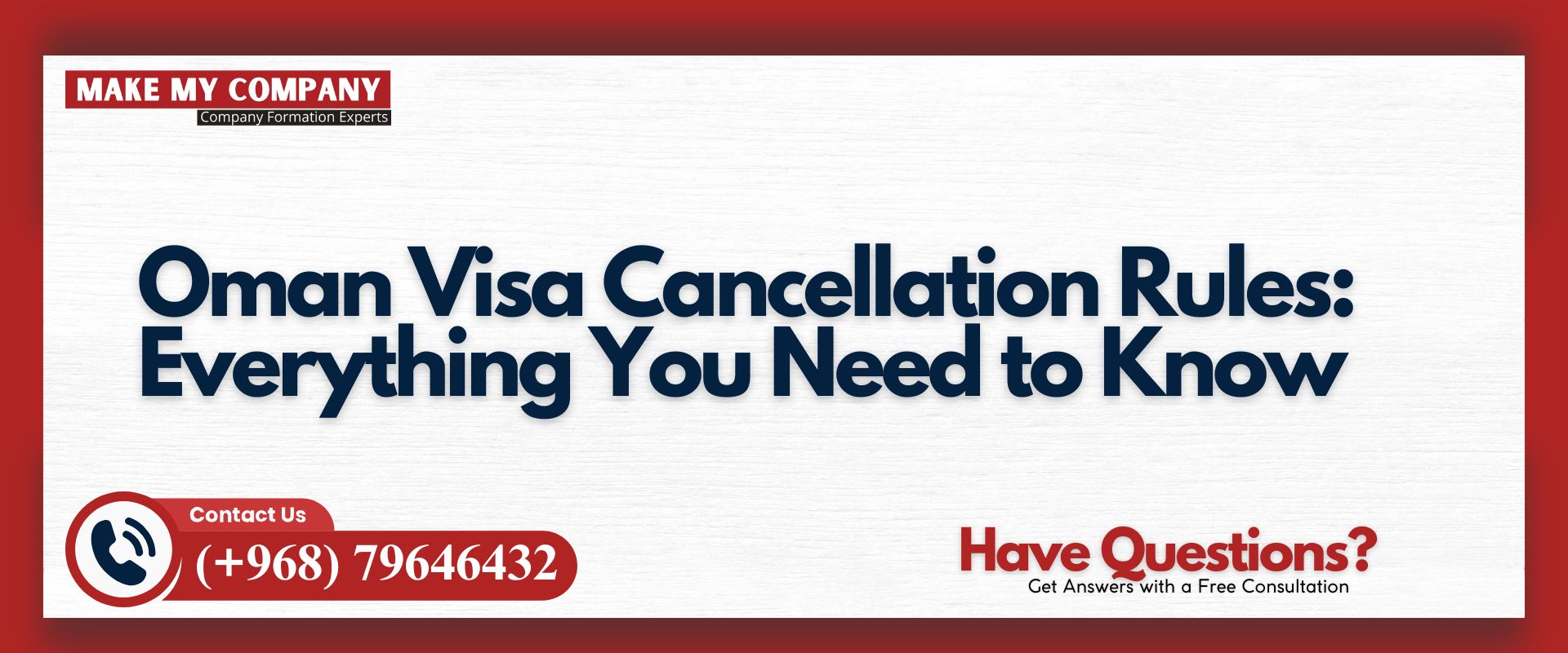Maintaining corporate records in Oman is a fundamental aspect of business compliance and corporate governance. Every company, regardless of its size or industry, must keep accurate and up-to-date records to ensure smooth operations, regulatory compliance, and transparency in business dealings. Proper documentation helps businesses track their financial health, legal status, and management decisions, making it easier to handle audits, legal disputes, and financial planning.
This guide will walk you through the importance of maintaining corporate records in Oman, the types of records businesses must keep, and best practices to ensure compliance with Omani laws. Whether you are a new business owner or managing an established company, understanding how to organize and maintain records efficiently is crucial.
Why Is Corporate Record-Keeping Important?
Every business must maintain proper records to comply with Oman’s Commercial Companies Law and other regulatory requirements. Keeping well-organized corporate records in Oman ensures legal compliance, helps in financial planning, and protects businesses from legal risks.
Failure to maintain accurate records can lead to fines, legal disputes, and even business suspension. Additionally, well-maintained records serve as a historical reference for the company’s decisions, financial status, and operational growth.
Key reasons why corporate record-keeping is essential include:
- Regulatory Compliance – Ensures the company follows Omani laws and meets reporting obligations.
- Financial Management – Helps businesses monitor cash flow, expenses, and profits.
- Audit Preparation – Makes it easier to provide necessary documentation during audits.
- Legal Protection – Provides evidence in case of disputes with stakeholders, employees, or authorities.
- Business Continuity – Helps in tracking past decisions and planning for future growth.
By maintaining proper corporate records in Oman, businesses can operate more efficiently and avoid unnecessary legal complications.
Types of Corporate Records Businesses Must Maintain in Oman
Companies in Oman are required to maintain various types of records for legal, financial, and operational purposes. These records must be kept in a secure and accessible manner, ensuring that they can be retrieved when needed. Below are the key categories of corporate records that businesses must maintain.
Statutory Records
Statutory records refer to documents that are required by Omani law for company registration and ongoing compliance. These include:
- Certificate of Incorporation – Official document proving the legal existence of the company.
- Memorandum of Association (MOA) and Articles of Association (AOA) – Defines the company’s structure, objectives, and internal governance.
- Shareholder Agreements – Outlines the rights and obligations of shareholders.
- Company Resolutions – Records of key decisions made by the board of directors or shareholders.
- Trade Licenses and Permits – Necessary approvals for operating in specific industries.
Financial Records
Financial records are crucial for monitoring a company’s financial performance and ensuring compliance with tax regulations in Oman. These records include:
- Annual Financial Statements – Profit and loss statements, balance sheets, and cash flow reports.
- Invoices and Receipts – Documentation of business transactions, purchases, and sales.
- Tax Filings and VAT Records – Compliance with Oman’s taxation policies.
- Payroll Records – Employee salaries, bonuses, and benefits.
Maintaining financial records not only ensures tax compliance but also helps businesses in budgeting, forecasting, and securing funding from investors or banks.
Employment and HR Records
Employee records are a critical part of corporate records in Oman. These documents must be kept secure and up to date to comply with labor laws. Important employment records include:
- Employee Contracts – Agreements outlining job roles, responsibilities, and compensation.
- Work Permits and Visas – Essential for foreign employees working in Oman.
- Attendance and Leave Records – Documentation of working hours, sick leaves, and annual leaves.
- Performance Reviews and Disciplinary Actions – Helps in tracking employee performance and managing HR policies.
HR records should be stored securely to protect employee confidentiality and prevent data breaches.
Meeting Minutes and Board Resolutions
Board meetings and shareholder meetings must be documented to provide a record of decisions made by the company’s management. These include:
- Minutes of Board Meetings – Summary of discussions, resolutions passed, and key decisions.
- Annual General Meeting (AGM) Records – Documentation of yearly shareholder meetings.
- Special Resolutions – Approval of significant changes like mergers, acquisitions, or capital restructuring.
Keeping meeting records ensures transparency and accountability in corporate governance.
Contracts and Legal Agreements
Businesses enter into multiple agreements with suppliers, customers, partners, and service providers. Maintaining copies of these legal documents is crucial for dispute resolution and compliance. These include:
- Supplier and Vendor Contracts – Agreements related to goods and services.
- Lease Agreements – Contracts for office space, warehouses, or retail stores.
- Loan Agreements and Bank Statements – Proof of financial transactions and obligations.
- Non-Disclosure Agreements (NDAs) – Protects sensitive business information.
Legal records should be reviewed periodically to ensure they are still relevant and valid.
Best Practices for Maintaining Corporate Records in Oman
To ensure that corporate records remain accurate and accessible, businesses should follow best practices in record-keeping.
Use a Centralized Record-Keeping System
Keeping all important corporate documents in a centralized system ensures easy retrieval and reduces the risk of losing critical records. Businesses can opt for digital record-keeping solutions to maintain scanned copies of essential documents.
Ensure Compliance with Omani Laws
Companies must stay updated with Oman’s corporate governance regulations and ensure that all required records are maintained as per legal requirements. Engaging a business consultant in Oman can help ensure full compliance.
Maintain Digital and Physical Copies
While digital record-keeping is efficient, maintaining physical copies of critical documents is equally important. Store physical records in a secure, fireproof location, and back up digital records regularly to prevent data loss.
Keep Records for the Required Retention Period
Certain records must be kept for a specified duration under Omani law. For instance, financial records and tax filings should be maintained for at least five years. Employment records should be stored even after an employee leaves the company.
Conduct Regular Audits and Updates
Periodically reviewing and updating corporate records ensures that they remain accurate and up to date. Regular audits help businesses identify any missing documents and ensure compliance with regulations.
Secure Confidential Information
Sensitive business information, including shareholder agreements, financial statements, and employee records, should be protected with restricted access. Implementing data security measures helps prevent unauthorized access and data breaches.
Train Employees on Record-Keeping Policies
Employees responsible for maintaining records should be trained on best practices for corporate records management in Oman. This includes organizing documents, ensuring accuracy, and following data protection laws.
What Happens If Corporate Records Are Not Maintained Properly?
Failure to maintain corporate records in Oman can result in serious legal and financial consequences. Companies may face penalties, compliance issues, or difficulties in securing business financing. Additionally, poor record-keeping can lead to operational inefficiencies, making it harder for businesses to track past decisions and plan for the future.
If a company fails to maintain accurate records, it may struggle during audits, investor due diligence, or legal proceedings. Keeping organized and up-to-date records is essential for avoiding these risks and ensuring business success.
Conclusion
Maintaining corporate records in Oman is not just a legal requirement but also a crucial aspect of efficient business management. Organized records ensure compliance, financial stability, and seamless business operations. Whether it’s statutory documents, financial statements, HR records, or legal agreements, every company must prioritize proper documentation.
For businesses looking to streamline their record-keeping processes, expert guidance can make a significant difference. Make My Company, a leading business setup company in Oman, helps businesses maintain proper corporate records and ensure full compliance with Omani regulations. Contact us today to manage your corporate documentation effectively.









